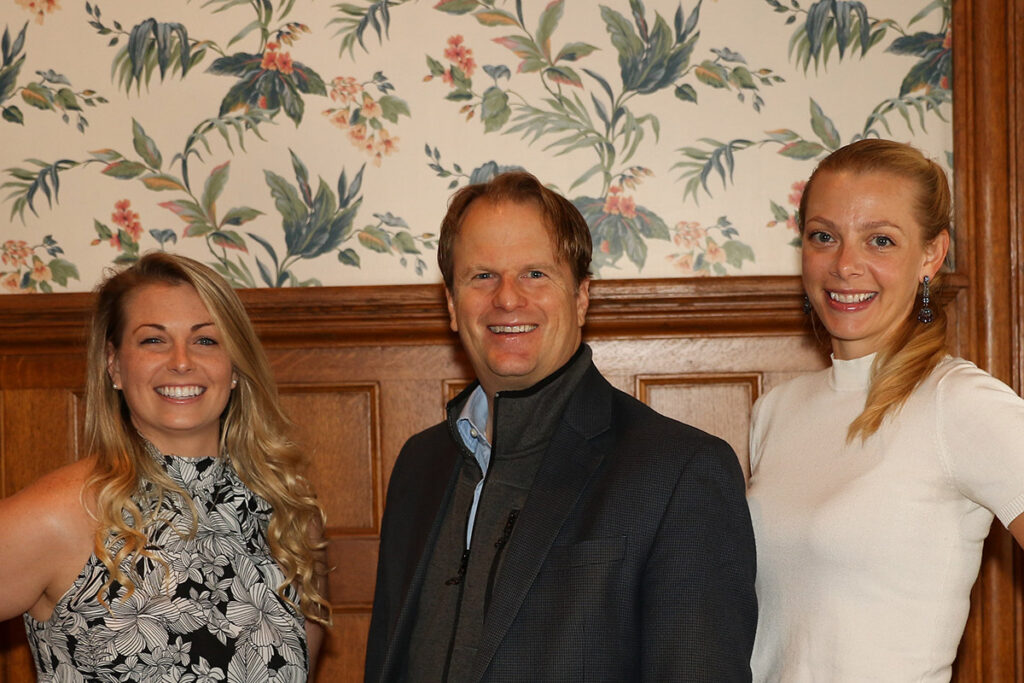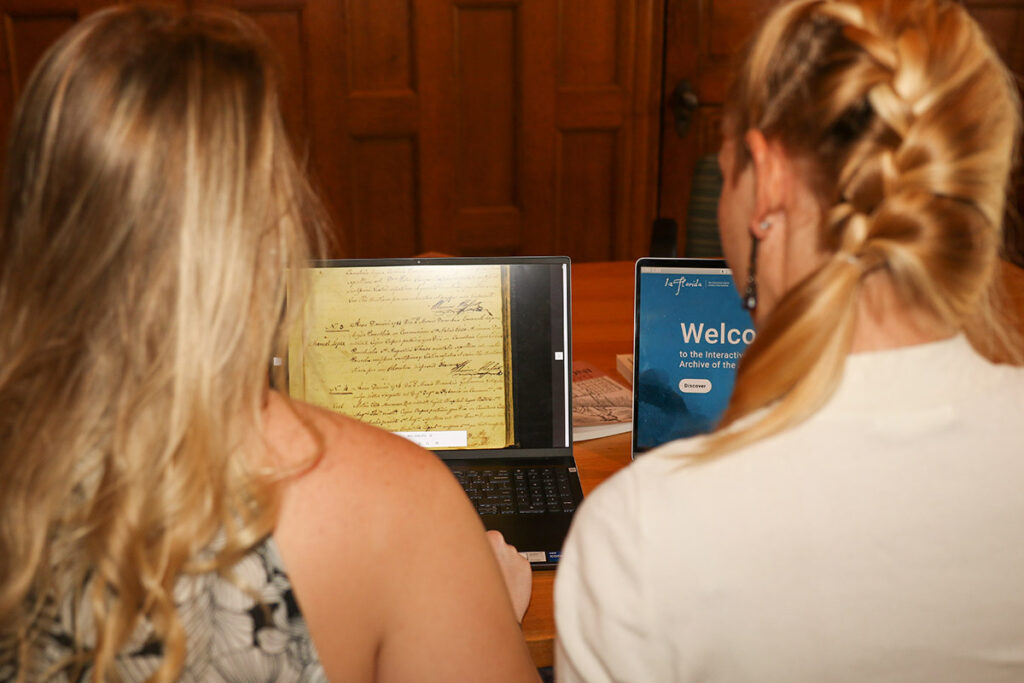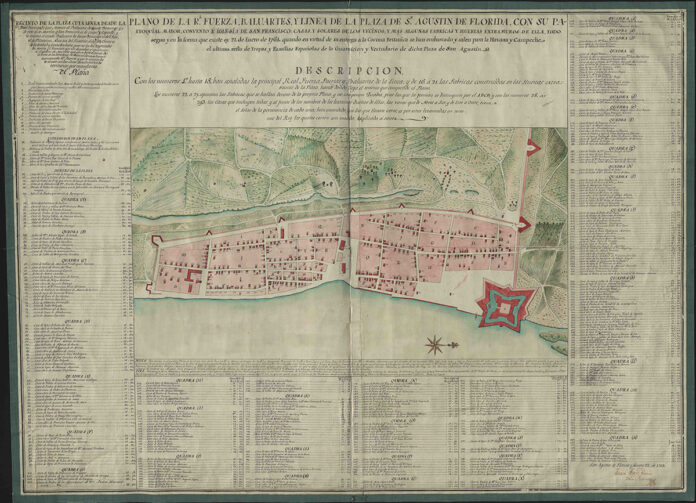Dotted with historical markers identifying significant places, people, and events from its past, St. Augustine has long served as a tourist attraction because of its status as the oldest continuously inhabited European-established settlement in what is now the contiguous United States. History, however, is not just a marker on a building or street; it is the story we tell about the past. And unlike the simplistic permanence that a metal marker implies, research conducted by a team of St. Petersburg-based historians reveals that the history of St. Augustine and its people is more diverse and nuanced than previously thought. Because most of the fragile documents helping to inform this research are written in Spanish or Latin, they’ve been mostly inaccessible except to the most devoted of academic researchers. La Florida: The Interactive Digital Archive of the Americas aims to change that by opening up this treasure trove to a global audience with its new initiative: Lost Voices from America’s Oldest Parish Archive.

The Digital Archive of the Americas: Early Days
The beginnings of this innovative digital archive can be traced back to a humble spreadsheet created by Dr. J. Michael Francis. As a professor of history and chair of the Hough Family Florida Studies program at the University of South Florida St. Petersburg, Francis spent years cataloging the names he came across in the course of his archival research. In 2018, with the help of some technological experts from Spain, the data in this spreadsheet became La Florida, an open-access searchable database with biographical data for more than 4,000 individuals. It was a promising start, but the newly formed team didn’t stop there. The St. Augustine’s Diocese of the Roman Catholic Church allowed the La Florida team to digitize the handwritten parish records held by the archives and add them to the website. Composed of nearly 9,000 fragile documents dating from 1594 to the late nineteenth century, these vital records provide rare insight into the daily lives and relationships of the diverse population of Europeans, Africans, and Native Americans who resided in St. Augustine. These digitized pages were an important addition, but Francis and his team had an even bigger idea. They wanted to recreate the La Florida Digital Archives website so that the records could become part of an innovative and interactive experience that all kinds of people could use, from school kids and teachers to genealogists and scholars. To bring this big idea into reality, they needed help. Luckily, the National Archives provided that boost in the form of a $250,000 two-year grant.
Lost Voices Found
This grant allowed the team to begin translating and transcribing the original handwritten documents. Damaged paper, challenging handwriting, faded ink and the sheer number of pages kept four people busy for two years. Concurrently, the team also began recording the extensive information contained in the 8,000-plus pages of baptisms, confirmations, marriages, deaths, and burials into another spreadsheet. For each of the 5,500 pages of baptismal records, every bit of information included in the record was entered in its own category field: names, dates, countries of origin, current location, titles or honorifics, race, ethnicity, and gender. It’s no wonder, it took seven people two years to complete. Once all this work was finished, La Florida had expanded its log of individual names from 4,000 to nearly 75,000. After that, the technological wizards stepped in and created the new website.

Sharing those Lost Voices: The Future of La Florida Digital Archives
The revamped La Florida website launches on February 1, 2022. It offers a fresh perspective on St. Augustine’s diverse beginnings, and it provides an innovative and interactive website that all kinds of people can use. Perhaps more importantly, it’s a website that all kinds of people will want to use. It offers multiple features and levels of engagement that will appeal to a wide variety of users, including academic researchers, genealogists, schoolteachers, local history enthusiasts, map lovers, and font fans. Data can be searched, filtered, cross-referenced, and visualized in multiple ways. Original documents can be viewed, searched, and transcribed in multiple languages. Maps can be overlaid and crossreferenced with other data to show details about individual properties and changes over time. Visitors will be able to send messages using their favorite historic fonts. La Florida needs to be experienced to be appreciated. After February 1, 2022 please visit those Lost Voices at www.laflorida.org and experience the history of Florida in a whole new way.
The Team
The project was a team effort. Most of the core research team members are in St. Petersburg, including Dr. J. Michael Francis, Rachel L. Sanderson and Amy Anderson. But the USFSP contingent could never have accomplished their goals without the Spanish members of the team, including chief paleographer (Latin/Spanish) Esther González and the technology expertise of Francisco Guitard and Manuel Cruces. They are also indebted to the work of a number of current and former graduate students from USFSP.



